INCHEON AIRPORT (ICN) INFORMATION
| Origin | Airline | Flight no. | Scheduled | Est./Actual | Status |
|---|---|---|---|---|---|
|
...
|
|||||
| Destination | Airline | Flight no. | Scheduled | Est./Actual | Status |
|---|---|---|---|---|---|
|
...
|
|||||
![car-icon]() Car Hire at Incheon Airport
Car Hire at Incheon Airport




Incheon International Airport - All Information on Incheon International Airport (ICN)
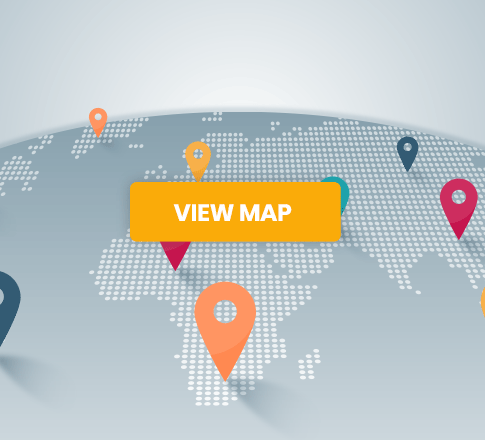
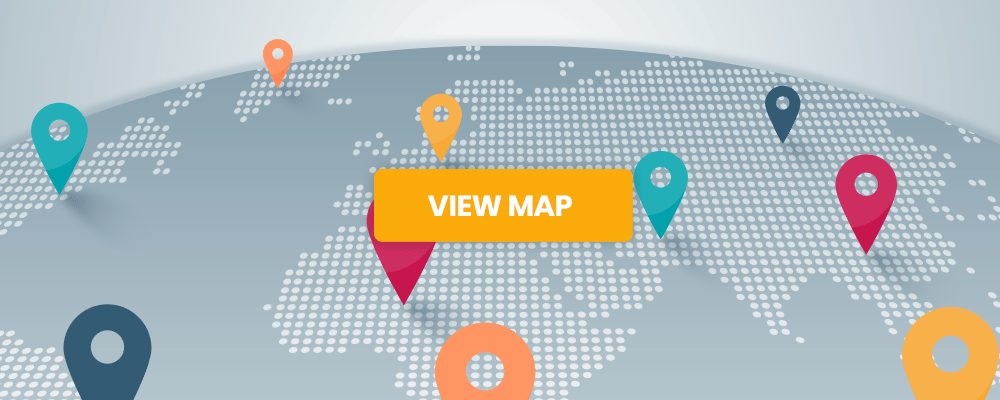
Incheon Airport
272 Gonghang-ro, Jung-gu, Incheon, South KoreaFacts and History about Incheon Airport
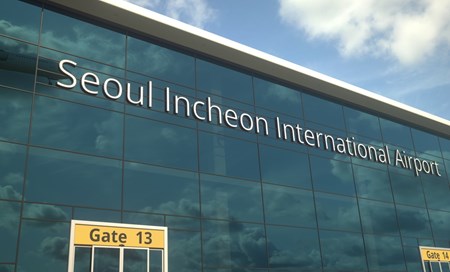
Incheon International Airport (IATA code: ICN), also known as Seoul-Incheon International Airport, is the busiest in South Korea. One of the largest and busiest airports in the world, it serves as the primary airport for the Seoul Capital Area.
Throughout Airports Council International's (ACI) best worldwide ranking existence, Incheon Airport consistently ranked first from 2005-2011. The airport features a casino, ice skating rink, indoor gardens, a video gaming center, a golf course, a spa, private sleeping rooms, and a museum dedicated to Korean culture.
Located west of Incheon proper, Incheon Airport occupies an artificial island between Yeongjong and Yongyu Islands. At first, a narrow sea separated the two islands. The construction project reclaimed land between Yeongjong and Yongyu islands, joining them together. The two islands and the reclaimed land are part of the Incheon district known as Jung-gu.
Transfer Services at Incheon Airport
Trains, buses, taxis, and rental cars are among the ground transportation options available at Incheon Airport. The Airport Railroad connects Incheon Airport and Seoul's central business district.
Certain buses run between Incheon Airport and several destinations in Seoul and its surroundings. In Korea, cab service is widely accessible. Several car rental companies are available both in advance and at the airport.
Compared to the global average of 60 minutes for departures and 45 minutes for arrivals, this airport is among the quickest in the world in customs processing, taking only 19 minutes and 12 minutes on average. Business Traveler magazine named its duty-free shopping mall the finest in the world for the third year in 2013.
Rental Car Services at Incheon Airport
By selecting one of the several vehicle rental choices offered at Incheon Airport, you may increase the flexibility and accessibility of your trip. There are short-term and long-term storage options and places to charge electric cars. Another principal element is the availability of sales at specific periods of the year or on days.
The car rental office is conveniently situated close to the long-term visitors' parking lot. The island is connected to the mainland by the toll-and-expressway-paid Yeongjong Bridge. The island and the central city are connected by a second highway on the Incheon Bridge.
View a selection of our car rental packages right here.
Taxi Services at Incheon Airport
The official name of Seoul's taxi service for tourists from countries other than South Korea is "International Taxis" Only tourists and non-locals may ride in these cabs. Foreign taxi drivers are expected to communicate effectively in English; many also speak other languages. See more information about taxis at Incheon Airport.
The cost of an international taxi from Incheon Airport to downtown Seoul is set. Which of the three price ranges you fall into determines your trip's cost. You won't be hit with any unexpected fees because tolls are covered by the fixed rate. The 4C terminal is where you may find a taxi to the airport.
Train Services at Incheon Airport
The Airport Railroad Express (AREX) has a station at the Transport Centre, close to Terminal 1.
It links the Gimpo International Airport in Seoul to the rest of the globe. Access points to the Incheon Subway, Seoul Metropolitan Subway, and Incheon Airport Maglev are available at several stations. More information about train services at Incheon Airport.
Bus Services at Incheon Airport
To carry travelers between Terminals 1 and 2, shuttle buses are available. You should expect to arrive there in around 20 minutes. The buses stop at the Hyatt and the airport fire station and run every 5-8 minutes.
The term "limousine buses" is mainly used to describe airport shuttles. You could travel to Gimpo Airport and Songjeong station using the frequent limousine buses. More information about buses to and from Incheon Airport.
Taking a bus that frequently goes between the many metropolises can allow you to move swiftly from one big city in Korea to another. Limousine buses operate between the airport and the Korea City Air Terminal in Gangnam.
Hotel Shuttle Services at Incheon Airport
Accessing and leaving the airport is simple, thanks to the Incheon Airport hotel shuttle service. The service is available every day of the week, anytime a customer wants it.
Remember to reserve. Locate the hotel shuttle ticket booth in the Arrivals Hall of Incheon Airport to make a purchase.
It takes about 45 minutes and costs 5,000 won per person to take a shuttle to downtown Seoul.
You may find the details you're seeking regarding our hotel on this page.
Rideshare Services at Incheon Airport
With the use of one of the various ridesharing services offered, traveling to and from Incheon Airport is a breeze. To use this service, you only need a smartphone and one of the numerous accessible apps.
Use your mobile device's Uber app to or from Incheon International Airport. Uber makes picking up and dropping off at the airport simple.
Parking Services at Incheon Airport
At the airport, there is room for both short- and long-term parking, accommodating between 4,000 and 6,000 vehicles. From the long-term parking area of the terminal to its passenger and cargo sectors, shuttles transport passengers and their possessions.
Visit our parking page for additional information.
Other Services at Incheon Airport
Passenger amenities at Incheon Airport include a variety of restaurants, cafes, and shops. There is also a medical clinic, pharmacy, bank, post office, and travel agency. The airport provides free Wi-Fi and has a business center with meeting rooms and fax/photocopy services.
The airport has a particular terminal for disabled passengers departing on international flights. This terminal has its own security check, baggage claim, and boarding gates. In addition, there are several art galleries and an observation deck from which passengers can watch planes take off and land.
Disabled Passengers at Incheon Airport
Incheon Airport provides several services for disabled passengers to make their travel experience more comfortable and convenient. These services include wheelchair assistance, Braille or audio signage, and designated parking areas.
The airport also has a dedicated help desk for disabled passengers, which is staffed with English-speaking personnel. This desk can provide information on the various services available and help with any specific needs passengers may have.
Wi-Fi at Incheon Airport
Incheon Airport offers free Wi-Fi to all passengers. To connect, search for the available network and enter your email address to register. Once connected, you will have unlimited free access to the internet.
Baggage Claim at Incheon Airport
Baggage claim at Incheon Airport is located on the ground floor of the passenger terminal. After arriving at Incheon Airport, please proceed to your airline's check-in counter to check your baggage.
Please make sure you are in the correct zone for your airline before collecting your baggage.
Information Desk at Incheon Airport
If you have any questions or need help, please don't hesitate to ask one of our friendly staff members at the Information Desk. We can assist you with various services, including directions, lost, and found, airport information, and more.
Smoking at Incheon Airport
Smoking is prohibited inside the airport terminal. There are smoking areas located outside the main entrance of each terminal.
Lost and Found Section at Incheon Airport
Many people lose items while they're on vacation or on business trips. Fortunately, most airports have a lost and found section where you can go to retrieve your lost items. The airport has a dedicated Lost and Found area where you can go to claim your lost belongings.
To make a claim, fill out a form and submit it to the staff at the Lost and Found office. You will need to provide a detailed description of the lost item and your contact information. Once your claim is processed, the staff will do their best to locate your lost item and return it to you as soon as possible.
Restrooms at Incheon Airport
Restrooms at Incheon Airport are clean and spacious, with plenty of amenities for travelers. There are also several family-friendly features, such as diaper-changing stations and baby-changing tables.
Nursing Mothers Station at Incheon Airport
The airport also has several nursing rooms for mothers who need to breastfeed or express milk.
ATMs at Incheon Airport
ATMs at Incheon Airport are in all of the terminal buildings. You can also find foreign currency exchange offices in Terminals 1 and 2.
Currency Exchange at Incheon Airport
There are plenty of options for exchanging your currency at the airport. Incheon Airport has several banks and currency exchange kiosks that offer competitive rates.
You can also find ATMs that dispense Korean Won and foreign currencies throughout the airport.
If you need to change a large amount of money, it's best to do so at one of the banks since they have more favorable rates than the kiosks.
Food and Beverages at Incheon Airport
Incheon Airport serves a variety of food and beverages to travelers from all over the world. There are many restaurants, cafes, and bars available at the airport. You can find anything from Korean cuisine to international fare.
There are also plenty of options for drinks, including alcoholic beverages. Whether you're looking for a quick bite or a leisurely meal, you'll be able to find something to suit your taste at Incheon Airport.
Shopping at Incheon Airport
Shopping at Incheon Airport is a unique experience. The airport is home to various stores and boutiques, many of which are exclusive to the airport. Incheon Airport is also home to several Duty-Free shops, which offer tax-free shopping on multiple items.
The duty-free shops at Incheon Airport are trendy, offering significant savings on a wide range of products. Many duty-free shops also offer discounts for travelers who make purchases with certain credit cards.
Pet Relief at Incheon Airport
Incheon Airport offers pet relief areas for travelers with four-legged companions. The airport has three pet relief stations, including an indoor facility, an outdoor park, and a grassy area. All the pet relief areas are well-lit and provide fresh water for pets. Travelers can also find plastic bags and waste disposal bins in each pet relief area.
Ticketing Services at Incheon Airport
Incheon Airport offers a wide variety of ticketing services to make your travel experience as smooth and convenient as possible. Its personnel can assist you with any questions or concerns regarding your flight.
The airport also offers a variety of payment options for your convenience, and an online check-in system makes it easy to manage your travel itinerary.
History of Incheon Airport
International flights to Korea rose after the country hosted the Summer Olympics in 1988. There was an apparent lack of capacity at Gimpo International Airport in the 1990s. The government decided to construct a second major airport to relieve pressure on Gimpo International Airport.
Incheon Airport, located between Yeongjong Island and Youngyu Island, was built on reclaimed land in November 1992. Total development time was eight years, plus another six months for testing. The economic crisis caused a delay in completion from the original target date of 1997.
The airport, which began operations on March 29, 2001, when the previous Gimpo International Airport was shut down, primarily serves internal destinations but also offers shuttle flights to major cities in East Asia, including Beijing, Osaka, Shanghai, Taipei, and Tokyo.
The Airbus A380's maiden certification flight landed on November 15, 2006. The airport's capability to accommodate the planes was confirmed by tests conducted on the runways, taxiways, and ramps.
Yeongjong Medical Centre, built by Incheon and the big Korean logistics corporation Hanjin Group (the parent company of Korean Air), was finished in 2012, significantly improving the quality of care available to residents of Incheon. Both locals and the 30,000 annual visitors seeking medical treatment in Korea are treated at this facility.
About Seoul Capital Area
The Seoul Capital Area (SCA) consists of Seoul, Incheon, and Gyeonggi Province metropolitan areas in northwestern South Korea. With an expected 26 million residents by 2020, it will be the world's fifth-largest metro region. Around 12,685 square kilometers in size.
This city is the nerve core of South Korea, serving as the country's cultural, commercial, financial, industrial, and residential hub. Seoul, home to roughly 10 million people, and Incheon, home to 3 million, are the two most populated cities in the country.
The Han River Valley is flat, and this is where the Capital Area is located. It is home to some of the Korean Peninsula's most fertile soil. However, today just a tiny fraction of it is farmed. The territory between Gimpo and Bucheon is mainly used for the Gimpo international airport, which sits on one of the country's more significant areas of fertile land.
It is estimated that the Capital Area has served as the site of the capital of Korea for the past two thousand years. The city's central location and comparatively peaceful environment have earned it a pivotal role in the country's affairs.
Baekje, one of the Three Kingdoms of Korea, had the earliest capital city. In 19 BC, Wiryeseong was established as the nation's initial capital. It was likely built not far from the line dividing Seoul and Gwangju City today.
Baekje, however, was unable to maintain control of the area and gave over the Han River valley to Goguryeo in the fifth century. After that, in the sixth century, Silla conquered the area. In that context, it facilitated Silla's diplomatic relations with China.
Around half of South Korea's GDP in 2017 was produced in the Seoul Capital Area. After Tokyo, New York City, and Los Angeles, this area is home to the headquarters of many companies that make up the Forbes Global 2000 list.
There are several high-tech business parks in the Seoul Capital Area, including Digital Media City and Pangyo Techno Valley, as the economy of the Seoul Capital Area shifted from a manufacturing-based economy to a knowledge-based economy.
South Korea's government plans to establish multiple economic activity hubs in the Capital Area. South Korea's southwest coast, including Incheon and Suwon, is dubbed the "International logistics and High-tech Industrial Belt" by the initiative. Seoul is dubbed "Northeast Asia's Financial and Business Hub."
Cities and apartments in the Seoul Capital Area are among Korea's most prosperous and desirable. Significant gaps exist between cities and neighborhoods, especially between those constructed by previous and current generations. Apartments and infrastructure in newer, more affluent regions, especially those close to Gangnam District, the region's business hub, are more expensive.
Weather in Seoul, South Korea
The summers in Seoul are lengthy, hot, muggy, damp, and partially cloudy, while the winters are brief, cold, snowy, and largely clear. Temperatures rarely drop below 11 degrees Fahrenheit or rise over 91 degrees Fahrenheit throughout the year.
Seoul is best for warm-weather activities from late May to early July and from late August to early October. For a full four months, from May 25 to September 24, the mercury regularly rises beyond 75°F. The hottest month in Seoul is August, with highs of 84 degrees and lows of 73.
From December 1 to February 28, temperatures below 44 degrees Fahrenheit characterize the cold season. January is Seoul's coldest month, with temperatures averaging 22°F lower than usual and 34°F higher than normal.
There is a significant seasonal variation in the typical cloud cover percentage over Seoul. Beginning in September and continuing for around six months until March, Seoul enjoys a period of relative calm and visibility. October is the clearest month in Seoul. There are often more overcast days from March until September. The month of July is the cloudiest in Seoul.
From June to September, you'll experience the wetter season. On average, July is Seoul's wettest month. September to June is the dry season. With only two rainy days in the entire month, January is the driest month in Seoul. In Seoul, July is the wettest month overall.
Useful Details in Seoul, South Korea
Seoul, the capital of South Korea, is a bustling metropolis with a population of over 26 million people. The city is home to many historical and cultural sites and modern amenities. Here are some valuable details about Seoul:
- The official language of Seoul is Korean. However, English is also widely spoken, so visitors should have no trouble communicating with locals.
- The South Korean Won (KRW) is used in Seoul. The current exchange rate is approximately 1 USD = 1,305 KRW (as of Dec. 2022)
- Credit cards are widely accepted in Seoul. However, travelers should still carry some cash for smaller purchases or in case of emergencies.
- If you find yourself in a police or medical emergency in South Korea, the best thing to do is to call 112. This is the number for both the police and ambulance service, and they will be able to help you out. If you don't speak Korean, some English-speaking operators can assist you.
South Korea National Emergency Numbers: 112
Hospital
Seoul National University Hospital (서울대학교병원)
Address: 101 Daehak-ro, Jongno-gu, Seoul, South Korea
Phone: +8215885700
Police
Seoul Metropolitan Police Agency (서울경찰청)
Address: 31 Sajik-ro 8-gil, Jongno-gu, Seoul, South Korea (서울특별시 종로구 사직로8길 31)
Incheon Airport Contacts
Address: 272 Gonghang-ro, Jung-gu, Incheon, South Korea
General Phone: +82 1577-2600
Lost and Found Phone: +82 1577-2600
Information Desk Phone: +82 1577-2600
Official Website: https://www.airport.kr/
Local Information
Drive on: Right
Electricity: 220V/60Hz
Plug: F
Currency: South Korean Won, KRW
Wi-Fi at Airport: Free Wi-Fi is available at Incheon Airport.
Services at Incheon Airport
- airplanemode_activeFlights
- drive_etaCar Hire
- airport_shuttleAirport Transfers
- local_parkingParking
- local_hotelHotels
Useful Information about Incheon Airport
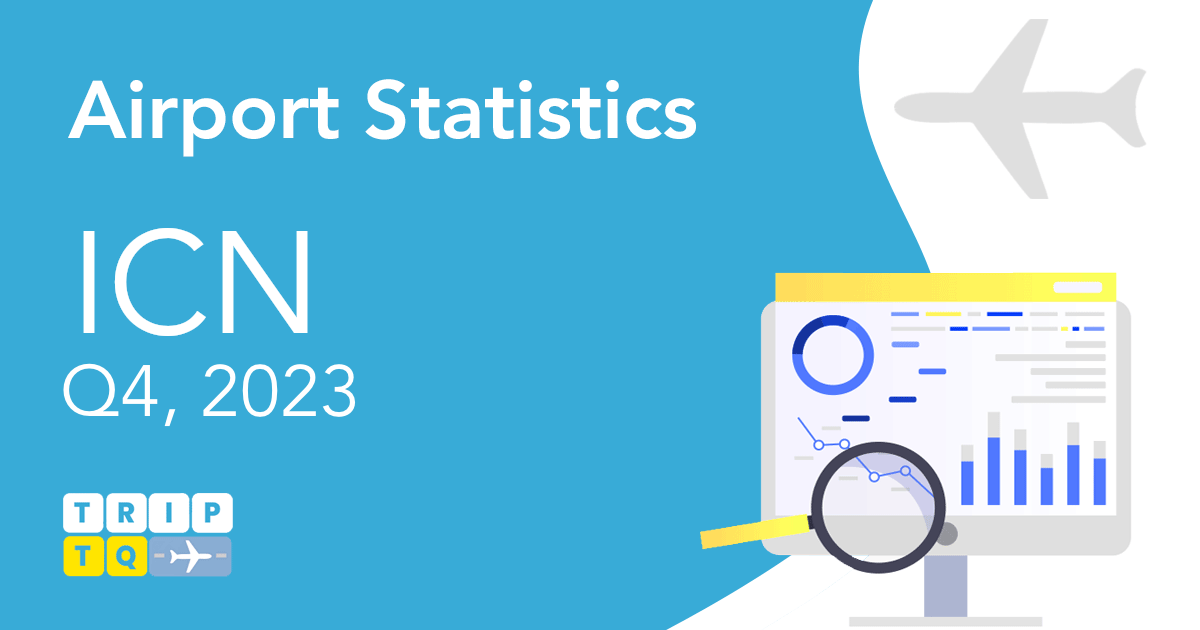
Incheon Airport Passenger Traffic Surges 90.3% in Q4 2023, Closing Gap to Pre-Pandemic Levels. While not exceeding Q4 2019 figures yet, the data shows significant recovery momentum, reaching 91.6% of its pre-pandemic volume.
View...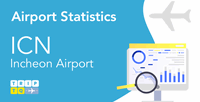
Incheon Airport Soars with 182.65% Passenger Increase in Q3 2023, Nearing Pre-Pandemic Levels and Outpacing Post-Pandemic Q3 2021 Growth
View...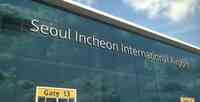

See all the airport lounges, locations and opening times available at Incheon Airport
View...